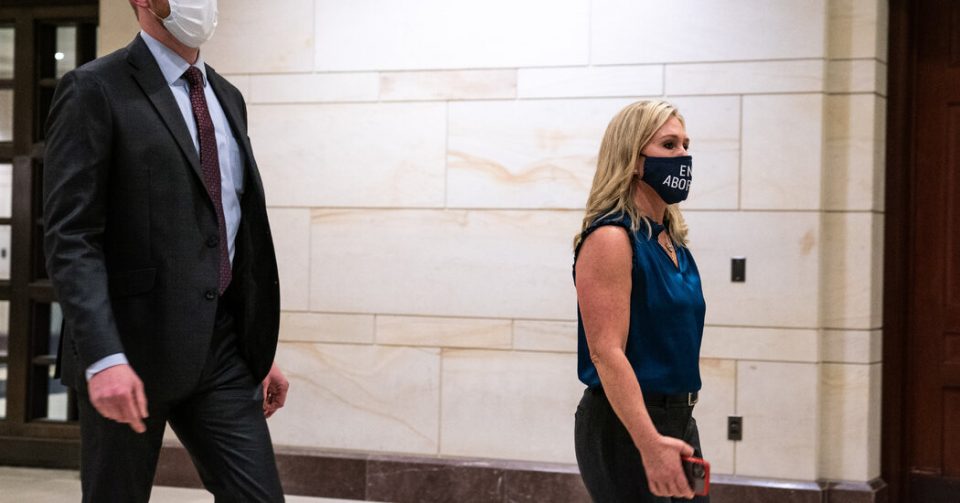
Still, the episode laid bare deep divisions among Republicans about how to move forward as a party. In the days leading up to the vote on Ms. Greene, Senator Mitch McConnell of Kentucky, the most powerful Republican in Washington, had denounced her statements, which he called “loony lies,” saying such conspiracy theories were a “cancer” on the party. Several other top Republican senators had joined him in denouncing Ms. Greene and saying she could not become the face of the party.
In an effort to warn Democrats about the move, House Republicans introduced their own proposal to remove Representative Ilhan Omar, Democrat of Minnesota, from the Foreign Affairs Committee, citing comments she made, including that Israel had “hypnotized the world” from ignoring their “evil doings.” Ms. Omar has publicly apologized for those comments, which drew charges of anti-Semitism.
“If this is the new standard, I look forward to continuing out the standard,” Mr. McCarthy said, adding that Republicans had a “long list” of Democrats they would want to remove from their committees.
On Wednesday, after Democrats had announced they would press forward to rebuke Ms. Greene, Mr. McCarthy issued a lengthy, tortured statement condemning her comments and saying that they had no place among House Republicans, but arguing that she did not deserve to be punished for them. He went further on Wednesday night after Republicans’ contentious, hourslong meeting, telling reporters that Ms. Greene had privately apologized for her previous remarks and suggesting that it was time to move on.
“She said she knew nothing about lasers or all the different things that have been brought up about her,” Mr. McCarthy said, apparently referring to a Facebook post Ms. Greene wrote in 2018 suggesting that devastating wildfires in California had been caused by a space laser controlled by a prominent Jewish banking family with ties to powerful Democrats.
“If we are now going to start judging what other members have said before they are members of Congress, I think it will be a hard time for the Democrats to place anybody on committee,” he added.
Removal from committees is usually reserved for lawmakers who are facing indictments or criminal investigations or who have otherwise broken with their party in a particularly egregious way, according to Eleanor Neff Powell, a professor of political science at the University of Wisconsin-Madison.


